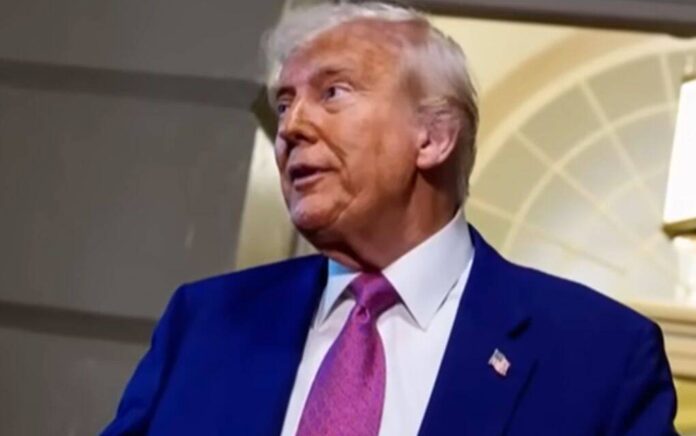
This is the last thing Trump needed. He’s now going to have to fight his way out of a bad situation.
And Donald Trump is furious after being handed this devastating report.
President Trump’s Second Term: Navigating Approval Ratings and Policy Challenges
Not even half a year into his second term, President Donald Trump faces a mixed landscape of public opinion, with approval ratings reflecting both his bold policy moves and ongoing economic concerns. Recent national surveys paint a nuanced picture of his standing, with some areas of strength overshadowed by persistent challenges.
According to a Marquette Law School poll conducted May 5-15, Trump’s approval rating sits at 46%, with 54% of respondents expressing disapproval.
A Reuters/Ipsos poll, conducted May 16-18, shows a slightly lower 42% approval and 52% disapproval. While most national surveys place Trump’s approval in negative territory, a few indicate he’s holding steady or slightly above even.
Trump began his second term with positive poll numbers, riding the momentum of his January 2025 inauguration. However, his ratings have since dipped, driven by various policy actions.
The president has leaned heavily into executive authority, issuing a flurry of executive orders to reshape federal policy and reduce the government workforce. Many of these actions aim to address long-standing grievances from his first term, but they’ve also sparked significant controversy and legal challenges.
On border security and immigration—key pillars of Trump’s 2024 campaign—his approval remains relatively strong. The Marquette poll shows 56% approval on border security and 50% on immigration.
These issues, which resonated deeply with voters last year, continue to bolster his support in some circles. However, his aggressive moves in these areas, while energizing his base, have not translated into broader gains in overall approval, facing pushback from critics and the courts.
“Immigration is declining now as a salient issue,” said Daron Shaw, a politics professor at the University of Texas and a member of the Fox News Decision Team.
Shaw notes that while Republicans still prioritize border security, Democrats and independents are shifting their focus back to the economy. “When you have success on an issue, it tends to move to the back burner,” he added, pointing to Trump’s immigration policies.
Economic concerns, particularly inflation, have weighed heavily on Trump’s approval ratings. His April tariff announcement triggered a trade war with key U.S. trading partners, leading to a sharp market sell-off and heightened recession fears.
Although a U.S.-China tariff truce has helped stabilize markets, public perception of Trump’s economic leadership remains lukewarm. The Marquette poll reports 37% approval on tariffs and 34% on inflation/cost of living, while Reuters/Ipsos shows 39% on the economy and 33% on cost of living.
Doug Heye, a veteran GOP strategist, emphasized the economy’s role in Trump’s 2024 victory. “The main reason Trump won was to lower prices. Prices haven’t lowered, and polls are reflecting that,” Heye said.
Shaw echoed this sentiment, noting, “With the exception of gas prices, there hasn’t been much of a reduction in prices.”
He added, “Prices haven’t come down, and it’s not clear that people will say the absence of inflation is an economic victory. They still feel that an appreciable portion of their money is going to pay for basic things.”
For Trump to turn the tide, Shaw suggests, “What Trump is realizing is that prices have to come down for him to be able to declare success.”
As the president navigates his second term, balancing bold policy initiatives with economic realities will likely define his path forward.
Stay tuned to The Federalist Wire.



















